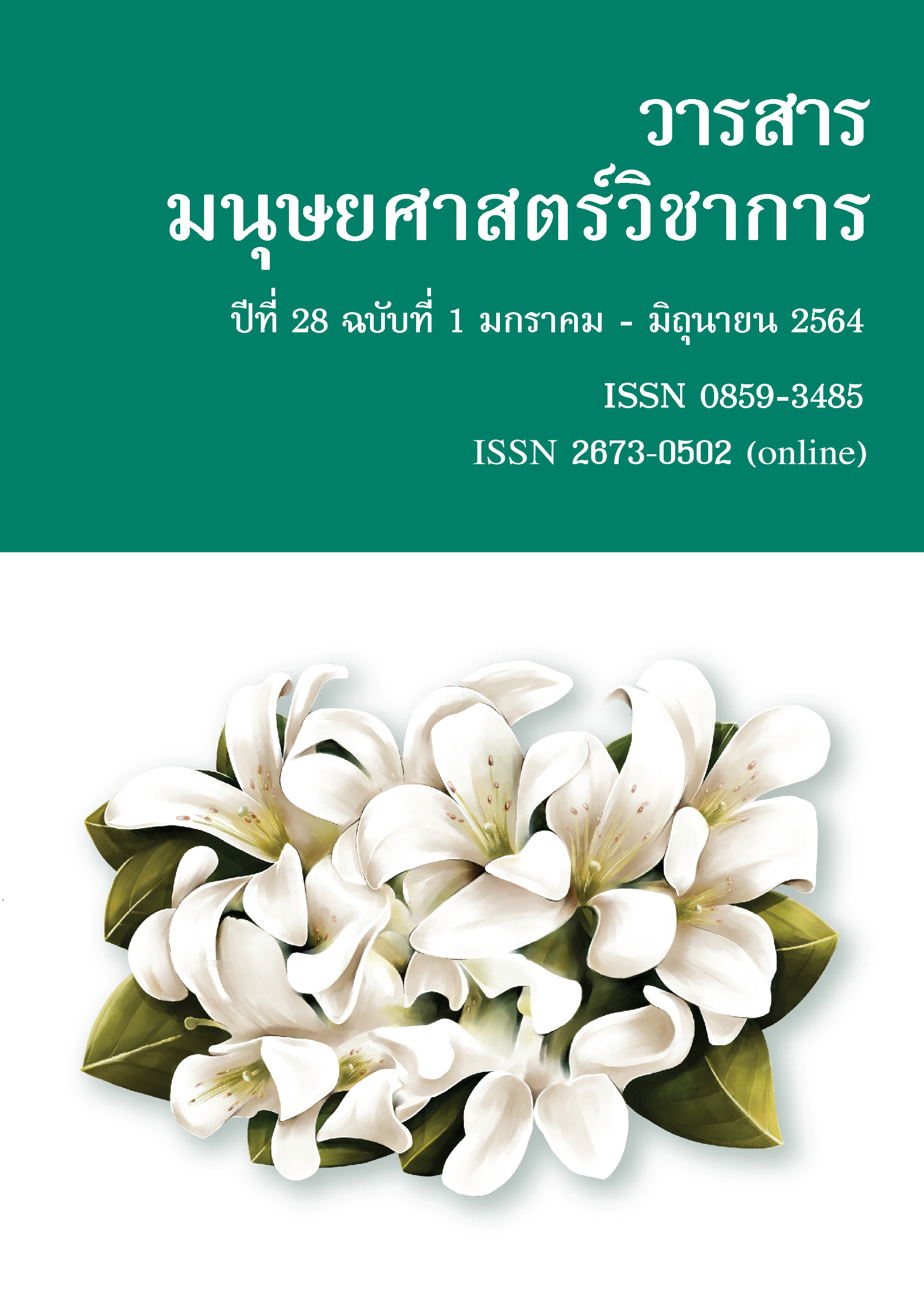The The Study of the Concept of Filial Piety in Confucianism through the Four Books
Main Article Content
Abstract
Chinese culture attaches great importance to filial piety, considering filial piety as the foundation of all goodness. Confucianism is the core of Chinese culture, values filial piety and presents the moral through many prominent scriptures. Especially in the collection of the Four Books or Chaturapakorn Scriptures, which is a collection of the essence of Confucianism, distinctly shows its significance to Chinese culture, all in philosophy, literature, and education in China up to the present day. This research aims to study the concept of filial piety in Confucianism that appeared in the collection of the Four Books. The research methodology is to collect and review the data from the collection of the scriptures, proceed with data sequencing and organize the data according to the research conceptual framework. After that, select information and thinking systems, which inserted in the content of the four scriptures to analyze, explain and connect all the ideas. The study discovered that the concept of filial piety in the Four Books has a consistent connection, indicating that Confucianism thinks of filial piety (孝) as a virtue that children should have for their parents, considered as a compensation for their love (愛), and when people are grateful to their parents as the basis, they will eventually expand the filial piety to loyalty (忠), respect (敬), and compassion (悌) towards others in society. It can be said the filial piety is the first step of all virtues. Filial piety is the fundamental of all morals and the way of virtue.
Article Details
References
กนกพร นุ่มทอง, และศิริวรรณ ลิขิตเจริญธรรม. (2562). หลักและข้อความระวังในการแปลจีน-ไทย ไทย-จีน. วารสารจีนศึกษา, 12(2), 105-151.
ชิดหทัย ปุยะติ. (2550). การศึกษาเปรียบเทียบภาษิต-คำพังเพยจีนและไทยที่สะท้อนแนวคิดเรื่องคุณธรรม (วิทยานิพนธ์ปริญญามหาบัณฑิต). กรุงเทพฯ: จุฬาลงกรณ์มหาวิทยาลัย.
ถาวร สิกขโกศล, และกนกพร นุ่มทอง. (2562). คัมภีร์ต้าเสวีย (มหาศึกษา) และจงยง (ความเหมาะสมที่แน่นอน) สองคัมภีร์ แก่นคำสอนของลัทธิขงจื๊อ. กรุงเทพฯ : สมาคมเผยแผ่คุณธรรม “เต็กก่า” จีจินเกาะ.
นรุตม์ คุปต์ธนโรจน์. (2551). นิทานจีนชุดยี่สิบสี่ยอดกตัญญู: การดำรงอยู่และวิธีการนำเสนอในสังคมไทยปัจจุบัน (วิทยานิพนธ์ปริญญามหาบัณฑิต). กรุงเทพฯ: จุฬาลงกรณ์มหาวิทยาลัย.
พระมหาสมชาย ฐานวุฑฺโฒ. (2547). มงคลชีวิต ฉบับ “ทางก้าวหน้า”. กรุงเทพ: ชมรมพุทธศาสตร์สากล.
ปกรณ์ ลิมปนุสรณ์. (2558). คัมภีร์เมิ่งจื่อ. กรุงเทพฯ : โอเพ่น โซไซตี้.
สยุมพร ฉันทสิทธิพร. (2558). ตำราทั้งสี่ กับการผลิตซ้ำอุดมการณ์ในการรักษาเสถียรภาพของสังคมจีน (ปริญญาดุษฎีบัณฑิต). กรุงเทพฯ: จุฬาลงกรณ์มหาวิทยาลัย.
สุวรรณา สถาอานันท์. (2551). หลุนอี่ว์: ขงจื่อสนทนา. กรุงเทพฯ : สำนักพิมพ์แห่งจุฬาลงกรณ์มหาวิทยาลัย.
Dai Maotang, Feng Zhaoyang. (2020). The Moral Purport of the Classic of Filial Piety: From the Perspective of Family Ethics. Journal of Hubei Engineering University, 40(1), 5-11.
李海霞.(2009).《論》《孟》《老》《莊》倫理道德詞語研究.重慶教育學院學報,40-46.
劉強.(2019). 為人之根,行仁之本——“四書通講”之孝悌之道. Masterpieces Review,47-54.
蘇俊源.(2007).看故事明道理: 孝的故事.臺北: 中華桃園明聖經推廣學會.
許嘉璐主編.(1998).文白對照十三經. 廣東: 廣東教育出版社.
楊朝明.(2020).儒家‘四書’與中華家風.中原文化研究,44-50.
張永超.(2016).先秦儒家“孝悌”觀的形成、演進及其理論困境---以“四書”和郭店竹簡為中心.鄭州大學公共管理學報,45-49.
朱熹撰, 張茂泽整理.(1999).四书集注.西安: 三秦出版社.


